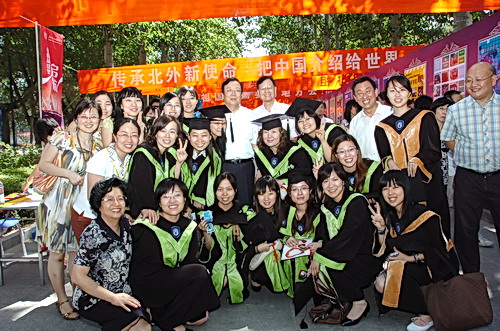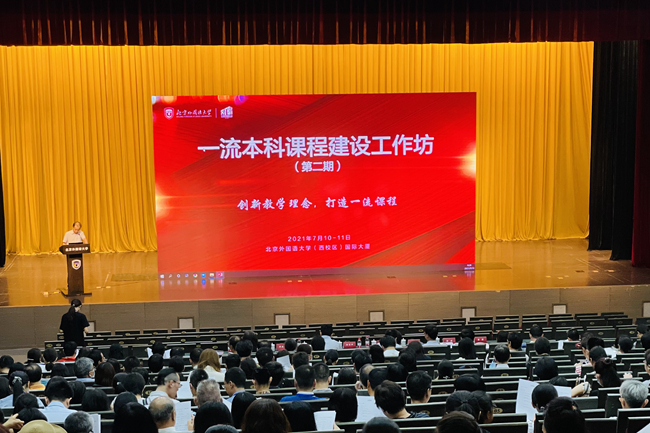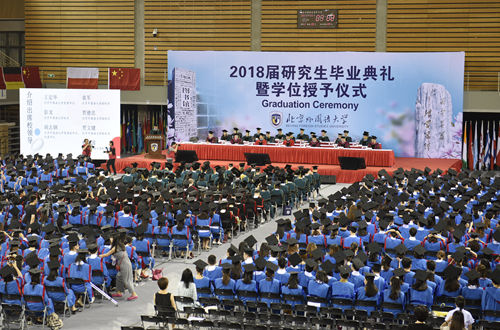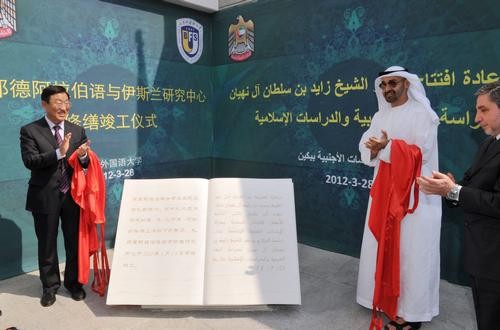Beiwai Held The "Himalaya Forum: New Trends And New Trends Of South Asia Research" Youth High -end Academic Conference
Beiwai Held The "Himalaya Forum: New Trends And New Trends Of South Asia Research" Youth High -end Academic Conference
On December 8th, the Himalayan Research Team of Beijing Foreign Studies University and Global Governance High -level Research Institute hosted the
On December 8th, the Himalayan Research Team of Beijing Foreign Studies University and Global Governance High -level Research Institute hosted the "Himalayan Forum: New Trends and New Trends of South Asia Research" academic seminar. Professor Yang Dan, president of Beiwai, deputy secretary of the party committee, and Dean of the Institute of Regional and Global Governance, attended the opening ceremony and delivered speeches. More than ten scholars from Beiwai, Peking University, Tsinghua University, Chinese Academy of Social Sciences, Chinese Institute of Modern International Relations, Beijing Second Foreign Language Institute, Sichuan University, Yunnan Academy of Social Sciences and other well -known universities and scientific research institutions passed through Participate in the seminars online and offline, share new thinking, and exchange new views. The opening ceremony of the meeting was chaired by Professor Wang Jianbin, Executive Deputy Dean of Regional and Global Governance Higher Research Institute.
Yang Dan said that research in South Asia has a very important strategic practical significance for China. At present, South Asia's research perspective is very rich, and the communication and sharing of more scientific scholars requires more scientific scholars. He emphasized that the South Asian region is an important area of human destiny community, global language community, global cultural community, and global governance community. Beiwai will continue to play its own language characteristics in South Asia in the future and contribute to its own power.
Researcher Ye Hailin, deputy dean of the Asia -Pacific Institute of Chinese Academy of Social Sciences and the Vice Dean of the Institute of Strategic Research of the Chinese Academy of Social Sciences, and Professor Li Xiguang of the School of Journalism and Communication of Tsinghua University respectively. The topic of power construction and the future development of Tibetan "made a keynote speech.
In the first seminar, researcher Qiu Yonghui, Vice President of the South Asian Society of China, researcher Qiu Yonghui, Sichuan University School of International Relations, researcher Li Li, deputy secretary -general of the South Asian Society, Researcher Li Li, the Institute of International Relations of the Tsinghua University, and Deputy Researcher Gao Cheng, Deputy Director of the Institute of Latin America, Chinese Academy of Social Sciences And Wu Zhaoli, secretary -general of the South Asian Society of China and the director of the editorial department of the South Asian Research Department, exchanged and shared the two topics of new issues, new hotspots and regional countries' research methods in South Asia, respectively. Xie Chao, an assistant researcher at the International and Regional Research Institute of Tsinghua University, sorted out and summarized the speeches of the scholars, and proposed that young scholars should pay attention to maintaining awareness of the problem, maintain high standards for their own thesis, adhere to basic research, lay a good academic foundation, Waiting views.
In the second seminar, researcher Chen Lijun, Vice President of the South Asian Society of China, Professor Chen Lijun of the Yunnan Academy of Social Sciences, Professor of the Beiwai Asia Academy, Associate Researcher Wang Shida, Nan Asia Institute of the Chinese Institute of Modern International Relations, Researcher Yang Siling, Institute of Nania Institute of Yunnan Provincial Academy of Social Sciences Associate Professor Xu Liang of Beijing Second Foreign Language College shared his views and views on topics such as Indian culture and Sino -Indian relations, Sri Lanka's domestic politics, South Asian geopolitics, Indian foreign strategy, and the status quo of Nepal research. Professor Zeng Qiong, the Beiwai Asia College, highly evaluated the speeches of the scholars. It was believed that the research of scholars covered the South Asian State Study and the Greater Power Game, deepening everyone's understanding of South Asia, and inspiration for his own research on Bangladesh.
Professor Li Ziying, deputy dean of the North Waiwai area and the Global Institute of Global Governance, made a concluding speech. She believes that the seminars are full of dry goods. They have both issues and other issues and research methods to share, which is very helpful for scholars in other regional research. It is expected that in the future, it will continue to maintain high -quality and detailed academic discussions and cooperation with other institutions to jointly help the development of research in related fields.
The Beiwai area and the Himalayan regional research team of the Global Governance Higher Institute are mainly composed of three young researchers.





